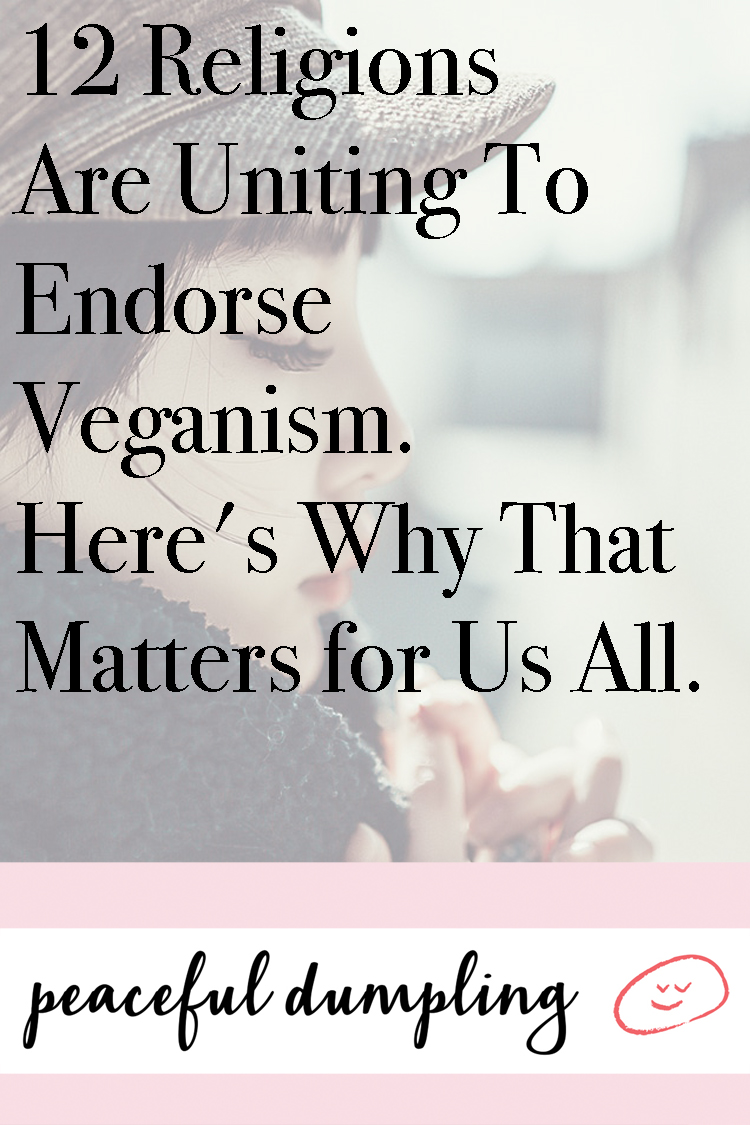
Veganism is just another way for us all to practice what we preach
The last few years have seen a huge boom in vegan-themed documentaries, from the trailblazing Forks Over Knives to What the Health? What’s often so appealing about this films is their sensational approach: watching extreme makeovers of body and mind as everyday people turn into poster children of the way that veganism can change things for the better. Increasing statistics about the connections between animal products and disease, and staggering facts about the environmental cost of the steak on one’s plate send jaws dropping and fingers clicking over to Amazon to buy a new Vitamix for all the smoothies they’ll be enjoying from here on out.
What’s missing from these undeniably exciting, and for us vegans satisfying, image reels is what could be called the heart of veganism. No matter what draws people to the lifestyle—whether it be animal rights, environmentalism, health, or any combination thereof—the decision is underscored by a desire to be kinder to something or someone, a recognition that our behaviors can have an effect on well-being. The deeper one commits to veganism, it’s often the case that what started out as a more superficial reason to adopt a plant-based diet transforms into something else. We feel great physically, a result countless studies have proven, and because of that freedom, we can access a store of wellness from which to give outward. Treating ourselves well makes us want to do the same for others, creating a lovely positive feedback loop of kindness.
Still, people tend to get uncomfortable when I bring up the compassion component of my veganism. I can blather on about why lentils are actually a better source of protein than that steak, and most likely win the argument if not hit a tie. The moment I start talking about how I’d rather not chew on another living being’s muscles, I get a lot of deep breathing and “Well, you know, it’s not like that…” By now the latter scenario doesn’t bother me as much, but it seems that finally, a shift is taking place in the conversation about veganism that makes both lines of the argument equally strong.
Addressing veganism from the unconventional viewpoint of religion, a new short film from The Guibord Center in LA called ANIMA: Animals. Faith. Compassion tackles this moral underpinning of veganism head on. According to the web description, the producers’ “hope is that this film will help to forever change the way people interact with animals through understanding them as living, feeling, sentient and sacred beings.”
Featuring faith leaders from twelve different denominations, including Hinduism, Christianity, Judaism, Buddhism, Jainism, Zoroastrian, and others, the film opens with a compelling refrain of this idea, pointing to how all these faiths respect the “sacredness of all life” in creed and deed. From east to west and everywhere in between, these representatives of what could be considered the most contentious social identifier sounded in sweet harmony on this fact, not the cacophony that we might expect.
They cite various religious texts wherein their personal god(s) explicitly advise against eating animals, and while not advocating for such a literal interpretation of any text this showcase a fundamental truth about the divine power behind the universe, no matter what its name: We were created to love one another, not to eat each other (literally or figuratively). Wars have been fought over religion for centuries, and yet here we see people who look different, speak different languages, worship in different ways, and live in all different places speaking the same words.
Although it’s under fifteen minutes long, the power of this rallying cry for animal rights is palpable. Already kicking up a storm on social media, it does have the hallmarks of some cheap emotional advertising—several speakers are holding adorable puppies while on camera. The abuses that religious institutions have endured and kept hidden are also impossible to ignore, lending a possible air of hypocrisy to what they preach.
For me, though, I felt heartened by the way that this film suggested we get back to the core of all our beliefs, whether it be religion or veganism or anything else. I’m a practicing Catholic and yogi, and in this film I saw both sides of my spiritual life uniting in a way that made me think, Yes, maybe we can get ourselves out of the moral mess we’ve made. On the one hand was the Very Rev. Canon Mark Kowaleski, who explained that Christianity teaches the “right relationship between us and all of these creatures.” Juxtapose that with the Hindu and Jain speakers’ emphasis on ahimsa, or non-violence, which means practicing right behavior toward self and others.
Seeing these core values echo as such made it clear why veganism is not just a trend, but rather a steadily growing movement: This lifestyle is tapping into an instinctual part of ourselves, which is represented in the faiths, and modes of storytelling we’ve used to puzzle out the meaning of life, that we’ve shaped society around. All religions teach that our goal as humans is to live as closely in God’s image as possible. Whether that god is a divine spirit, or the spark inside your best friend, your mom, your kitty cat, or the plankton at the bottom of the sea, we can all work to getting a little closer to the warmth and light of that spark.

What inspires you to live compassionately and kindly?
Also by Jennifer: 5 Celeb Astrologers Who Are Eerily Spot-On–And Will Give You Major Clarity & Inspo
Related: The Clarity Cleanse: What Anne Hathaway & A-Listers Are Currently Freaking Out About
7 Yoga Mudras To Manifest Your Intentions And Cleanse Your Energy
Get more like this—Subscribe to our daily inspirational newsletter for exclusive content!
__
Photos: Pexels.com
